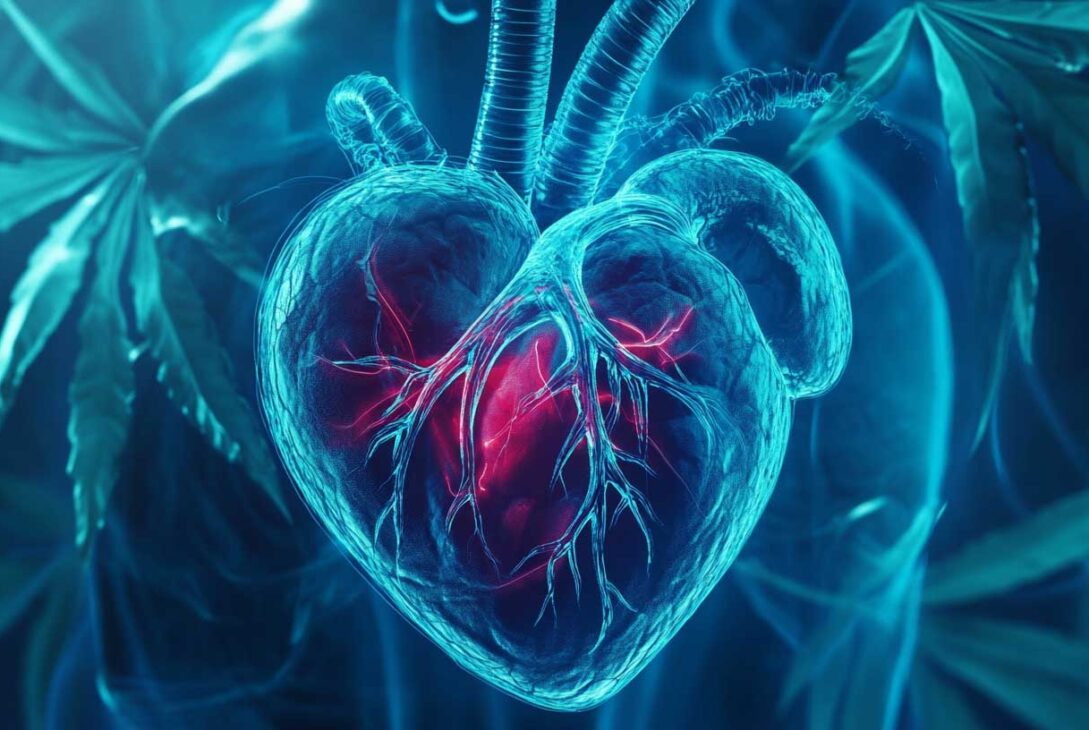Introduction to CBD and Cardiovascular Health
In recent years, CBD (cannabidiol) has stepped out from the shadows of its more famous counterpart, THC, capturing the interest of health enthusiasts and researchers alike. As people increasingly seek natural and holistic approaches to health management, the spotlight has turned toward CBD, particularly in its potential benefits for cardiovascular health. Understanding how CBD can influence your heart and overall vascular system is essential, especially as cardiovascular diseases continue to affect an alarming number of individuals worldwide.
This guide explores the relationship between CBD and cardiovascular health, diving into current research, benefits, and practical considerations regarding its use. We’ll look closely at how CBD may impact blood pressure, heart function, and circulation, providing insights that could contribute to a healthier lifestyle.
The Science Behind CBD and Cardiovascular Health
At its core, the connection between CBD and cardiovascular health hinges on the biochemical capabilities of CBD within the human body. There’s compelling evidence that points toward its anti-inflammatory and antioxidant properties, both of which are critical in maintaining a healthy cardiovascular system.
Anti-Inflammatory and Antioxidant Properties
Inflammation is often dubbed the silent killer in the realm of heart health, playing a key role in the onset of numerous cardiovascular diseases. CBD has been found to exhibit anti-inflammatory effects, potentially reducing the risk and severity of conditions like myocardial infarction and cardiomyopathy. By effectively lowering inflammation, CBD may contribute to a healthier heart.
Moreover, oxidative stress, caused by an imbalance between free radicals and antioxidants in the body, is another factor that places strain on your cardiovascular system. CBD’s antioxidant properties can help mitigate this stress, providing a protective effect that may reduce long-term damage.
Blood Pressure Regulation
Blood pressure regulation is a significant aspect of cardiovascular health. Several studies support the idea that CBD can help lower blood pressure, particularly in individuals dealing with hypertension. A clinical trial published in Cannabis and Cannabinoid Research highlighted that participants who were administered daily doses of CBD experienced a reduction in their overall blood pressure over time. Specifically, after 2.5 weeks of regular doses ranging from 225 mg to 450 mg, patients reported lower systolic and diastolic pressures.
Additionally, a 2017 study in England showcased that even a single dose of 600 mg of CBD could mitigate stress-related spikes in blood pressure, indicating that CBD may also serve as a useful strategy for stress management—an essential component of dealing with heart health.
Vasodilatory Effects
Vasodilation refers to the widening of blood vessels, which enhances blood flow and, therefore, oxygen delivery throughout the body. CBD appears to induce vasodilation by activating receptors such as CB1 and TRPV1, leading to the relaxation of smooth muscle cells in the vascular walls. This effect can help individuals with cardiovascular issues by improving circulation and overall heart efficiency.
Heart Health
The prospect of CBD benefiting heart health is an exciting area of research. Comprehensive reviews suggest that CBD may positively influence factors like heart failure risk and overall outcomes in individuals with pre-existing heart conditions. Preclinical research demonstrated positive effects on ischemia, arrhythmias, and metabolic syndrome-like conditions, opening the potential for further in-depth clinical studies on CBD’s impact on coronary syndromes.
Circulation and Endothelial Function
Endothelial function, which refers to how well the inner lining of blood vessels performs, is critical for cardiovascular health. Improved endothelial function and reduced arterial stiffness have been noted with regular doses of CBD. Enhanced circulation through improved endothelial function can lead to a more responsive cardiovascular system, reducing risks associated with vascular diseases.
How CBD Affects Cardiovascular Markers
Understanding how CBD influences various cardiovascular markers is vital to realizing its potential benefits.
Blood Pressure
- Reduction in Blood Pressure: Engaging studies consistently indicate that CBD can reduce ambulatory blood pressure in individuals with hypertension. Evidence points toward effects being noticeable with chronic administration, typically achieving significant results within about two weeks.
- Stress-Induced Blood Pressure: CBD can also help lower blood pressure spikes triggered by stress, making it a potential complement to traditional hypertension treatments.
Heart Rate and Circulation
- Vasodilation: The vasodilatory effects of CBD pave the way for improved blood flow. For those suffering from heart-related issues, this aspect alone could yield beneficial outcomes.
- Endothelial Function: Better endothelial function and arterial stiffness reduction can contribute to enhanced circulation, leading to an overall improvement in cardiovascular health metrics.
Inflammation and Oxidative Stress
- Anti-Inflammatory Properties: CBD’s ability to lower inflammation is significant because chronic inflammation serves as a catalyst for a myriad of cardiovascular concerns.
- Antioxidant Properties: By combating oxidative stress, CBD assists in shielding the cardiovascular system from the damaging effects caused by free radicals, thus promoting longevity and health in the heart and blood vessels.
Practical Considerations and Safety
While the potential benefits of CBD for cardiovascular health are enticing, practical considerations should be taken into account.
Dosage and Administration
- High Doses: Many studies demonstrating the positive effects of CBD involved higher doses (such as 600 mg). It’s important to note that anyone considering such doses should consult with a healthcare professional to ensure safety and suitability for their specific health needs.
- Forms of CBD: The form in which you take CBD—whether it’s oil, tinctures, capsules, or gummies—can greatly affect its absorption and effectiveness. For instance, CBD oils and tinctures often act more quickly due to their direct entry into the bloodstream compared to capsules or edibles, which must be digested first.
Safety and Side Effects
- Consult a Healthcare Professional: Prior to incorporating CBD into your daily routine, especially if you’re taking other medications or managing pre-existing conditions, speaking with a healthcare professional is essential. This step will help safeguard against possible interactions and side effects.
- Monitoring Blood Pressure: Individuals already experiencing low blood pressure should exercise caution when using CBD, as it may lower blood pressure further. Routine monitoring can help ensure safety and adjust usage as necessary.
Conclusion and Next Steps
The growing body of research suggests that CBD holds promise for enhancing cardiovascular health by positively affecting several key markers, including blood pressure, heart function, and circulation. Here are some actionable takeaways based on the insights provided:
- Consult a Healthcare Professional: Before integrating CBD into your health regimen—especially for those on other medications or with existing health conditions.
- Monitor Blood Pressure: Pay attention to your blood pressure if you decide to use CBD, particularly if you already have low levels.
- Choose the Right Form of CBD: Familiarize yourself with the different forms of CBD and their absorption rates, allowing you to select the method that best suits your needs.
- Stay Informed: Keep abreast of ongoing research regarding CBD to remain updated on developments and insights that could impact your health journey.
While the initial data surrounding CBD and cardiovascular health appears promising, it’s essential to prioritize safety and personal health by consulting with healthcare professionals. Remember to proceed with curiosity and care as you explore the potential benefits that CBD may offer.





















